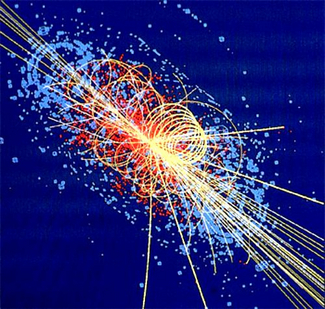Jan 19 2013
In July 2012, a much-anticipated announcement was made in the science community. The Higgs Boson was discovered. It was a big deal, as it explains why certain particles have mass while others do not.
 After the 2012 discovery of the Higgs Boson, will funding for particle physics disappear? Photo by: flickr/robertg6n1
After the 2012 discovery of the Higgs Boson, will funding for particle physics disappear? Photo by: flickr/robertg6n1
But now, six months later, what lies ahead for the study of particle physics, if anything at all, remains unknown. Lawrence Krauss, ASU Foundation Professor in the School of Space and Earth Exploration and the Department of Physics, explains in a recent Future Tense article on Slate that without the next area of focus defined, research of this nature is greatly endangered.
Krauss settles on the fact that, "it was hard enough to convince the governments of the world to spend money pushing the edges of knowledge even when we had a pretty good idea what we were looking for. ... It is hard to imagine any government willing to fund the next generation of research when the outcome may be only that we need to work harder still and pay yet more money to uncover the secrets of the universe."
With that, the future of projects that seek to answer "fundamental questions of the universe" remain unknown.
Future Tense is a collaboration among ASU, the New America Foundation, and Slate magazine that explores how emerging technologies affect policy and society. The Future Tense channel at Slate features multiple blog posts daily and several full length articles weekly.